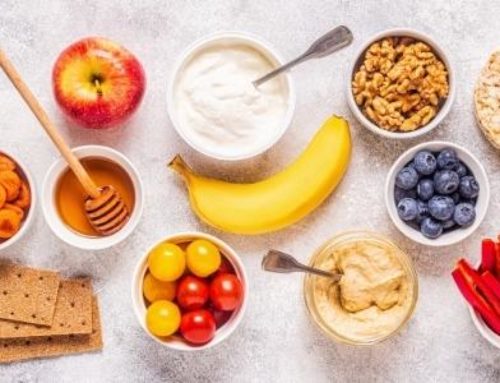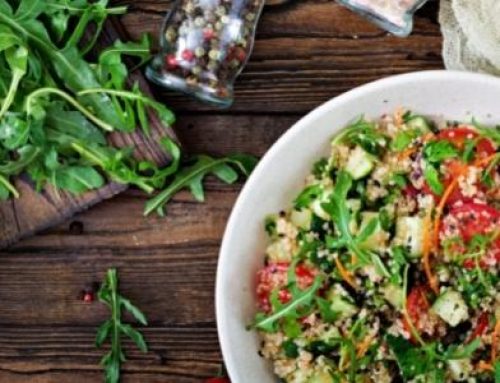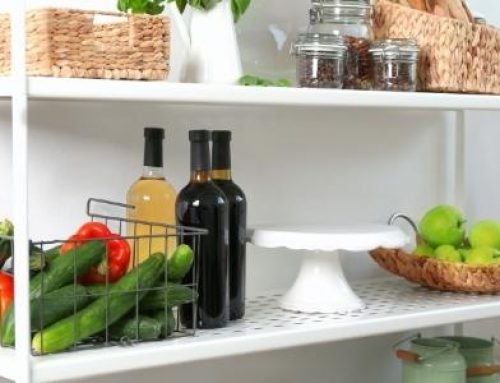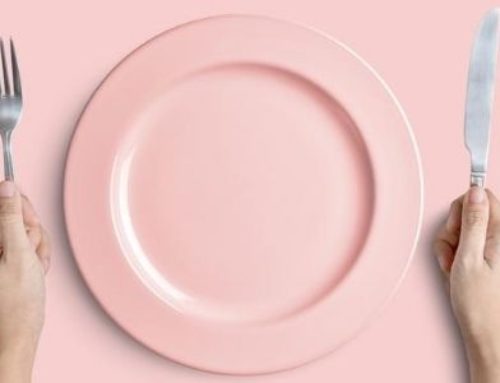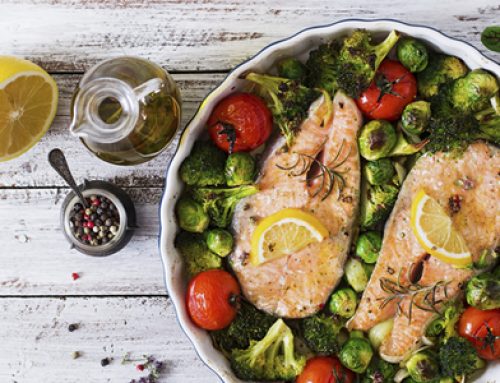It’s important to have a pantry stocked with healthy items so we enable ourselves to make smart choices, particularly when we don’t have a planned meal.
The following foods are core ingredients for a meal, a tasty addition, and/or a convenient snack.
1. Canned or dried legumes: lentils, chickpeas, beans
Legumes are a good source of protein and an excellent source of fibre! Fibre is important in our diet as it adds bulk and softens our stool (goodbye constipation), makes us feel fuller for longer and can help to lower cholesterol. Legumes are versatile foods and can be eaten in many different ways e.g. in soups, stews, salads, can be pureed for dips/spreads or can be added to meatballs/burgers.
2. Canned tomatoes
Canned tomatoes are inexpensive, convenient and are perfect for cooking anything tomato-based. They can be thrown into pasta sauces, bolognese, soups, stews, curries, risotto and salsa. They’re also an excellent source of vitamins C, E and K.
3. Brown rice
If you normally opt for white rice, try make the swap to brown rice as it has twice as much fibre! Brown rice microwave cups are available in the supermarket which is a great option for when you need to whip up a quick meal.
4. Vetta smart fibre pasta
Vetta pasta is again another smart swap to get extra fibre in your diet. Compared to regular white pasta, Vetta pasta has double the fibre. It is also a low GI option meaning it takes longer to breakdown and digest, leaving us feeling fuller for longer.
5. Canned tuna
Tuna is an excellent source of protein and omega-3 fatty acids (healthy fat) which is particularly important for brain health. It’s a great post-workout snack, it can be added to salads or sandwiches, or it can be made into a convenient meal e.g. tuna + microwave rice cup + Steam Fresh vegetable bag.
6. Rolled oats
Oats contain a soluble fibre that can help with lowering cholesterol. They are perfect for busy mornings as all you need to do is add water or your milk of choice and cook for 2-3 minutes. The best way to add flavour is by mixing in various toppings such as fresh fruit, honey, nuts and/or seeds. My favourite combo is fresh strawberries, silvered almonds and a touch of honey.
7. Breakfast cereals
There are lots of great breakfast cereals on the market but what is it we should be looking for? Aim for a cereal that is made with wholegrains, low in added sugar and high in fibre (at least 5g per serve). Examples of great cereal options are Weet-Bix, Kellogg’s All Bran Original, Morning Sun and Carman’s Fruit Free Muesli.
8. Olive oil
Olive oil is a great source of monounsaturated fat (healthy fat). This type of fat has shown to help with reducing cholesterol levels, which lowers your risk of heart disease. Oils made from plant sources contain monounsaturated fat e.g. sunflower, canola, peanut and sesame.
9. Nuts and seeds
Unsalted nuts and seeds can be a tasty snack but are also a fantastic addition to meals, whether they be mixed in or sprinkled on top e.g. oats, smoothies, sauces, salads and stir-fries. They’re a great source of monounsaturated and/or polyunsaturated fat, fibre and an array of vitamins and minerals.
Nuts are easy to overconsume, therefore we need to be mindful of portion size. A serving size = 30g and this will look different depending on the nut/seed e.g 20 almonds, 10 walnuts, 4 chestnuts or 2 tbs of pine nuts equate to approximately 30g.
10. Onion and garlic
Onion and garlic are the backbone of many recipes as they add amazing flavour. They can turn a flavourless dish into something you can’t get enough of! Onion and garlic are known for their anti-inflammatory and antioxidant benefits, and they both provide good sources of vitamin C, vitamin B6 and potassium (plus many more). Lucky for us, they have a very long shelf-life which makes it easy to have them stocked in the pantry.












